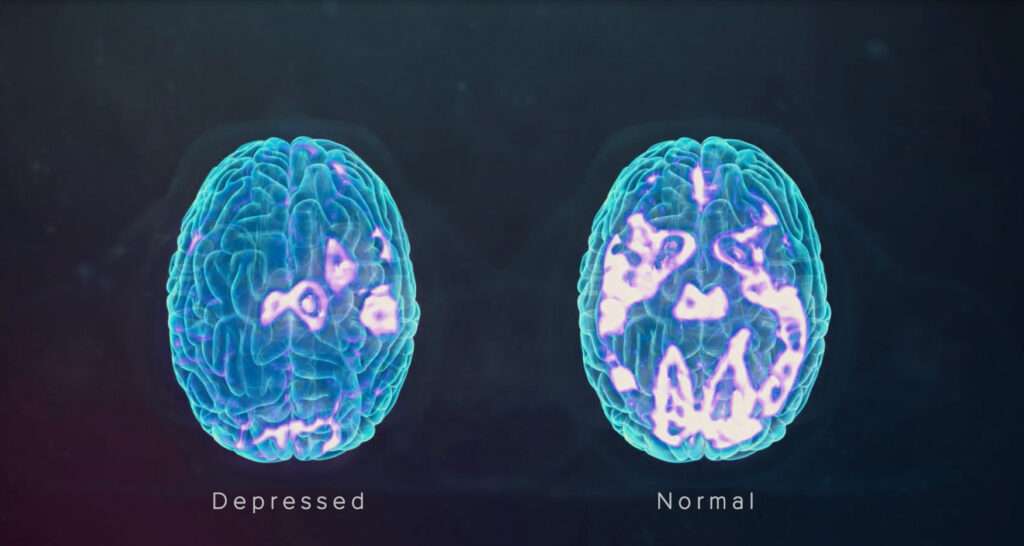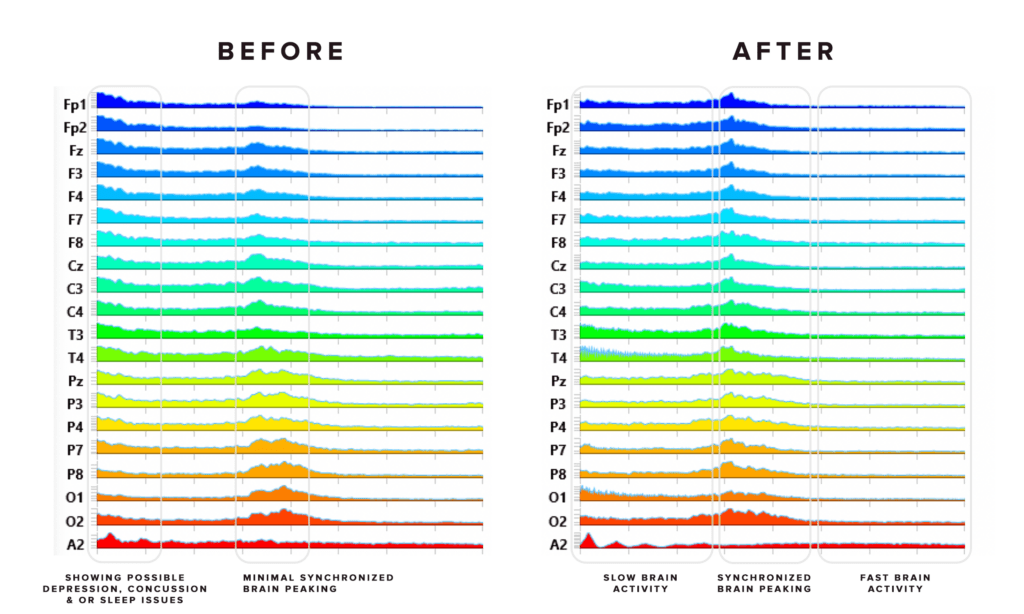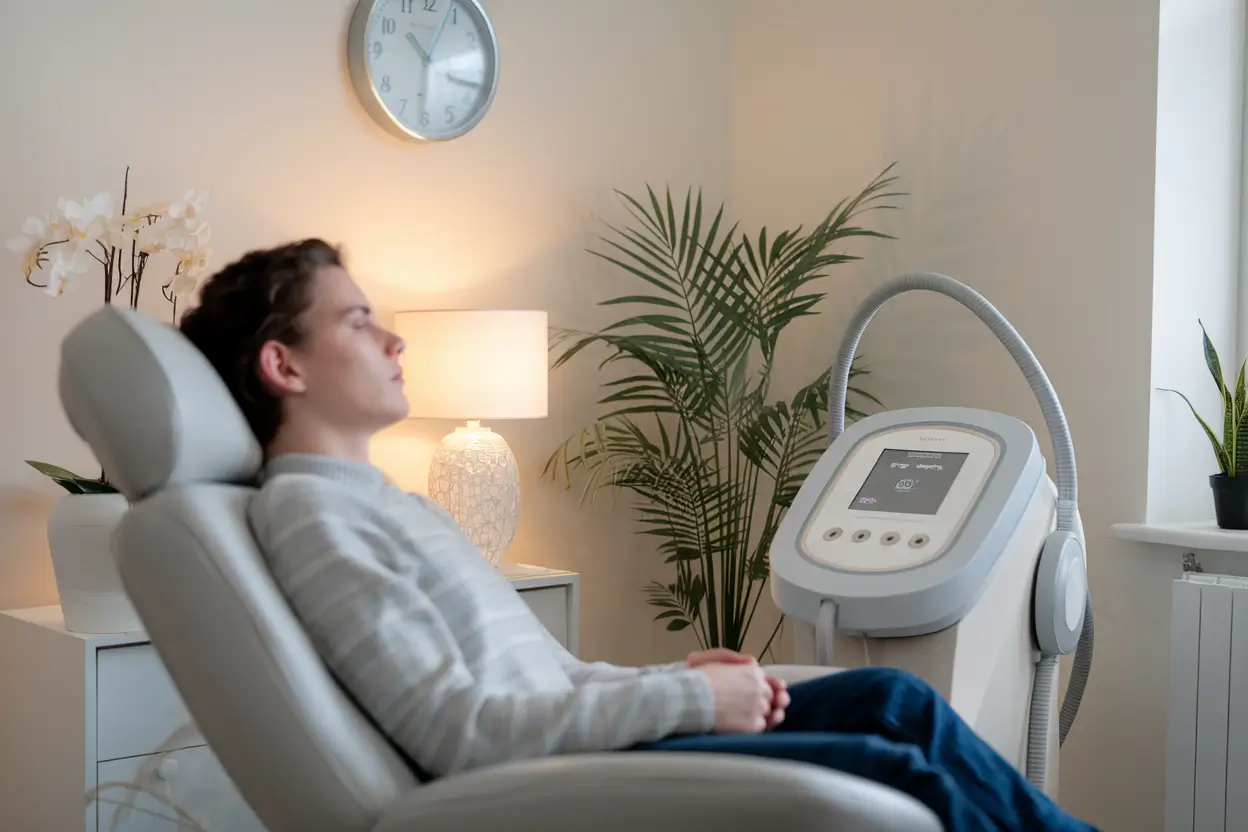Let’s Talk About The “Mom Struggle”
Postpartum depression (PPD) can make you feel lost. Know that you’re not the only one. A lot of moms have these problems and feel like they can’t get out of the fog. You don’t have to fight this battle by yourself. Numerous different physical, emotional, and environmental factors interacting with one another are the root cause of postpartum depression. It can have a big effect on new moms. Phoenix moms who think they might be dealing with postpartum depression now have new treatments that don’t involve drugs that can give them hope.
Let’s look at why moms are turning to TMS Therapy to get closer to their kids and spouses and feel happier with their lives.

Risk Factors for Postpartum Depression
Several things can make you more likely to get postpartum depression, showing that the condition is more complicated than just hormonal changes:
- History of Depression: Women with a history of depression or anxiety are at a higher risk of developing PPD.
- Lack of Support: Feeling isolated or lacking emotional support from partners, family, or friends can increase the risk.
- Complications During Pregnancy or Birth: Difficulties during pregnancy or childbirth, including health problems for the mother or baby, can lead to PPD.
- Sleep Deprivation: The lack of sleep and the physical demands of caring for a newborn can exacerbate feelings of depression.
- Personal or Family History of Bipolar Disorder: This can also be a significant risk factor, indicating a potential genetic predisposition to mood disorders.
Hormonal Changes and Brain Chemistry
Hormones are the most important change that can lead to postpartum depression. During pregnancy, oestrogen and progesterone levels are much higher than they normally are. In the 24 hours after giving birth, these hormones drop by a lot, which can make some women feel depressed and cause mood swings. This up and down of hormones changes the chemistry of the brain and the neurotransmitters that control mood.
Neurotransmitters
Neurotransmitters, such as serotonin, dopamine, and norepinephrine, are very important for controlling mood. When their levels change or when the brain changes how it processes them, it can lead to PPD. For example, having low levels of serotonin is linked to feeling anxious and depressed.
Stress and the HPA Axis
The hypothalamic-pituitary-adrenal (HPA) axis controls how the body reacts to stress. Long-term stress can make the HPA axis work too hard, which raises levels of cortisol, the stress hormone. Having too much cortisol can lower the amount of serotonin and other mood-related neurotransmitters that are normally present, which can lead to PPD.
The Gift of TMS Therapy: Beyond Just Treatment
TMS therapy is more than just a procedure; it’s a way to find your happiness and clarity again. This treatment doesn’t hurt you and gently stimulates your brain. It helps clear up the fog of postpartum depression symptoms without the need for traditional drugs. It’s a chance to get back the “superpowers” you thought you had lost: the power to enjoy the little things, remember the good times, and stress less.
TMS therapy wakes up the brain by activating parts that have been inactive because of depression. This “turns back on” the brain’s ability to control mood in a good way. Less activity in the brain is often a sign of depression in areas that control mood, emotions, and making decisions. Targeted stimulation in TMS therapy is a powerful way to restore balance and function to these important areas.

3 Things You May Not Know About Postpartum Depression in Phoenix
- It Can Happen to Any Mom: It doesn’t matter if you’re a first-time mom or if you’ve had babies before. PPD can surprise anyone.
- More Than Just Feeling Sad: PPD can make you feel really worried, super tired, or even angry. It’s not just about being sad.
- Talking Helps: Sharing how you feel with a doctor or friends can make a big difference. You’re not alone in this.
Safe Depression Treatment for Breastfeeding Moms in Phoenix
Worrying about how medicine might affect your baby while you’re breastfeeding adds to your stress. In this case, TMS therapy is very helpful. Because it doesn’t involve medicine, you can get help for your PPD symptoms without worrying about breastfeeding. It’s a safe and effective way to get better, so you and your baby can keep spending time together during these special times. TMS therapy is great for moms who breastfeed. Since there is no medicine, you don’t need to worry about how it might hurt your baby. You don’t have to worry about feeding your baby.
Introducing PrTMS®: Personalised Support for Postpartum Depression Symptoms in Phoenix
The personalised treatment of PrTMS® goes one step further by looking at your unique brainwave patterns and making the therapy fit your needs. This new method makes sure that the treatment works as well as it can, precisely targeting the different aspects of your PPD symptoms. It’s about getting to the bottom of your mental and emotional problems, which gives you a more focused and flexible way to recover.

Postpartum Depression in Phoenix: Therapy That Fits Your Life
The ease of use is one of the best things about TMS and PrTMS® therapies. You can even bring your baby with you. Sessions are short and don’t have any breaks. You can fit therapy into your life instead of the other way around. This makes it easier to start and stay on track with your treatment.
From Fog to Clarity: Emotional and Cognitive Benefits
TMS and PrTMS® therapies light the way, taking you from a cloudy area to one with clear, sunny skies. In Phoenix, mothers who have tried these therapies say they have felt a huge difference: they have less stress, more joy, and a clarity of thought that they thought they had lost. You’ll learn how to be strong again and enjoy being a mum again.
Building Stronger Bonds: Connecting with Your Child
Your relationship with your child could get stronger and happier as you work through your PPD symptoms with the help of TMS and PrTMS®. You can be fully present with your baby, laughing, playing, and getting close to them now that you are free from your depression. To join in with joy, you have to hear the music in your child’s laughter.
Frequently Asked Questions
1. Is TMS safe while breastfeeding?
Absolutely. TMS therapy is medication-free, making it a safe choice for breastfeeding moms.
2. How does PrTMS® differ from regular TMS?
PrTMS® tailors the treatment to your brain’s unique rhythms, offering a more personalized approach to managing PPD symptoms.
3. How can I start with TMS or PrTMS® therapy?
The first step is reaching out. Contact us, and we’ll guide you through the process.
Ready to Step Into the Light?
If postpartum depression in Phoenix Arizona is clouding your experience of motherhood, know that there’s hope. TMS and PrTMS® therapies offer a new beginning, not just as treatments, but as pathways to stronger bonds with your child and a brighter, clearer future.
TMS and PrTMS® for postpartum depression (PPD) are off-label, not specifically approved by the FDA for PPD. Research, including a study in the Journal of Affective Disorders ScienceDirect, supports their potential benefits.
Contact American TMS Clinics today to discover how we can support you and your baby on this journey to joy. It’s time to reclaim your life and the joys of motherhood.
or Call us at (602) 922-0960
5020 E Shea Blvd Suite 120, Scottsdale, AZ 85254




